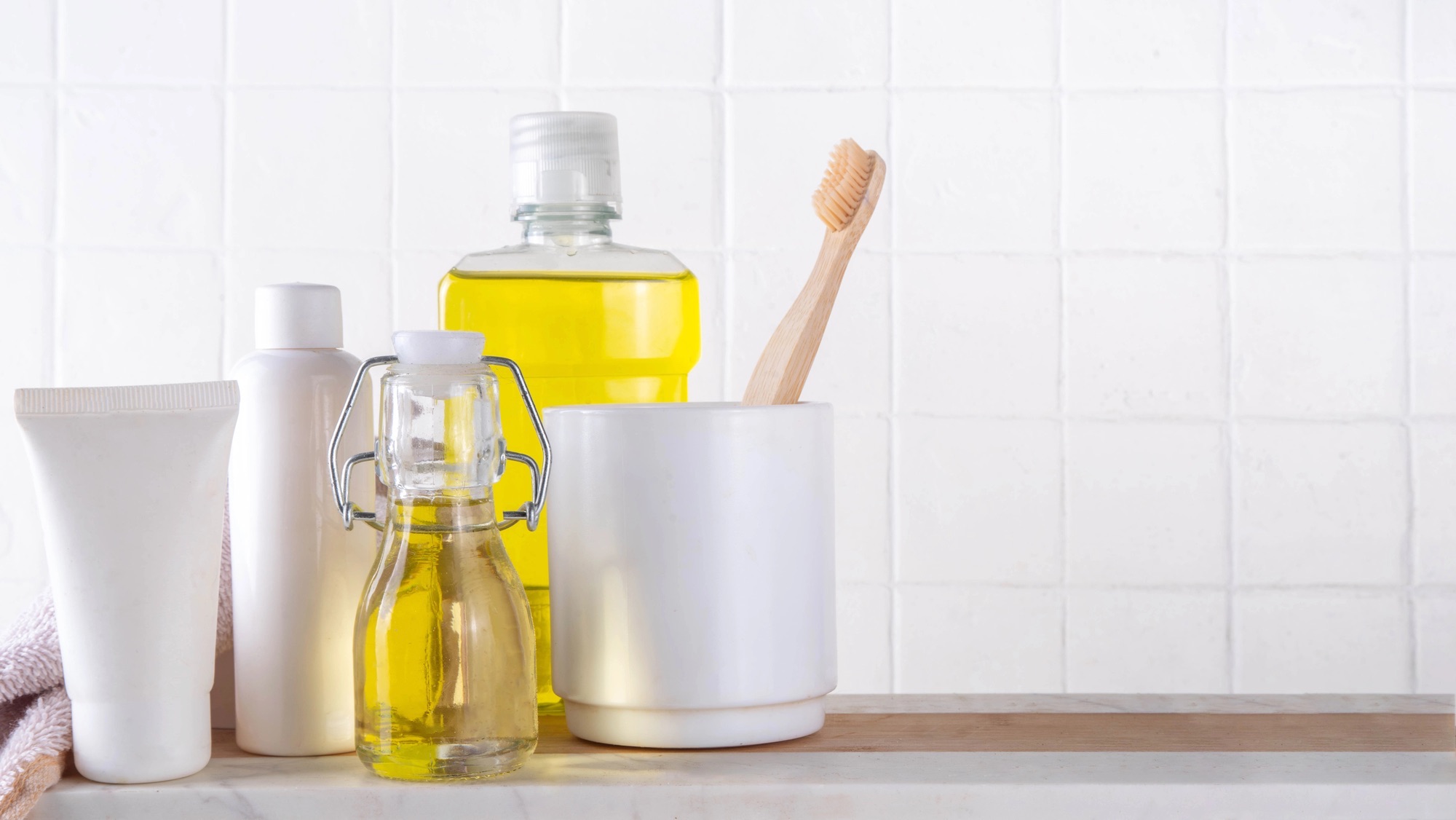

Certain health trends seem to gain and lose popularity in cyclical patterns again and again every few years. In this way, oil pulling as a method to clean your mouth and teeth—an ancient Ayurvedic practice that originated more than 3000 years ago—seems to have stood the test of time. But what does the science say?
Oil pulling involves taking a mouthful of oil—usually sesame, coconut, or sunflower oil—and swishing it in your mouth for about 15 minutes before spitting it out, similarly to how you might use mouthwash. Proponents of the practice say that as the oil moves around, it kills harmful bacteria, pulls toxins out of the mouth and gums, prevents cavities, and whitens teeth. Some people make additional claims that the practice can detox the body or improve heart health. But unfortunately, many of these claims are simply too good to be true—no robust scientific evidence suggests that oil pulling can do any of these things.
Much of the benefits of oil pulling come from anecdotal reports, says Ananda Dasanayake, a professor of epidemiology at the New York University College of Dentistry. In a 2022 meta-analysis of nine different studies, researchers did find that oil pulling reduced the total number of bacteria in the mouth. But, Dasanayake points out, this analysis found no reduction in a specific and important kind of bacteria, Streptococcus mutans, which is the bacteria that causes tooth decay and gum disease. Since oil pulling doesn’t seem to help reduce these harmful bacteria, all signs point to oil pulling as not a helpful practice for preventing cavities.
[Related: To rinse or not to rinse? You might be brushing your teeth wrong.]
“It’s important to note that the absence of scientific studies does not necessarily mean that oil pulling is ineffective,” Y. Natalie Jeong, a professor and chair in the department of periodontology at Tufts University School of Dental Medicine, writes in an email. Meaning, there just hasn’t been enough well-designed research to conclusively get to an answer. There’s still a possibility that we might one day prove some kind of benefit to oil pulling. But given the lack of evidence today supporting oil pulling, Jeong does not recommend it to patients.
New York-based dentist Zahra Omar says she is “pro oil pulling, as long as it’s in addition to everything else,” meaning that patients should still be regularly brushing their teeth and flossing. But she thinks people will find that it’s not such an easy thing to add to your day—10 to 20 minutes is quite a bit of time, especially since you’re not going to get any huge benefits.
If you are set on trying oil pulling, just to see how it feels, go ahead, says Dasanayake. Proponents of oil pulling typically recommend you do it once a day, preferably in the morning. Do it before you brush or floss your teeth and really swish the oil around—you could help dislodge some bacteria or food particles this way. Spit the oil out and continue with your typical dental care routine.
Oil pulling has not been shown to be harmful in any way, if done right. Though swallowing the oil after you’ve used it might cause some digestion issues. This could also be harmful if people take it as a substitute for other dental care, says Omar. “This isn’t a substitute for good practices,” she says. At the end of the day, people should think critically about what they’re doing for their health. “If it sounds too good to be true,” says Omar, “then it is.” And if you have a dental issue, please go see a professional.